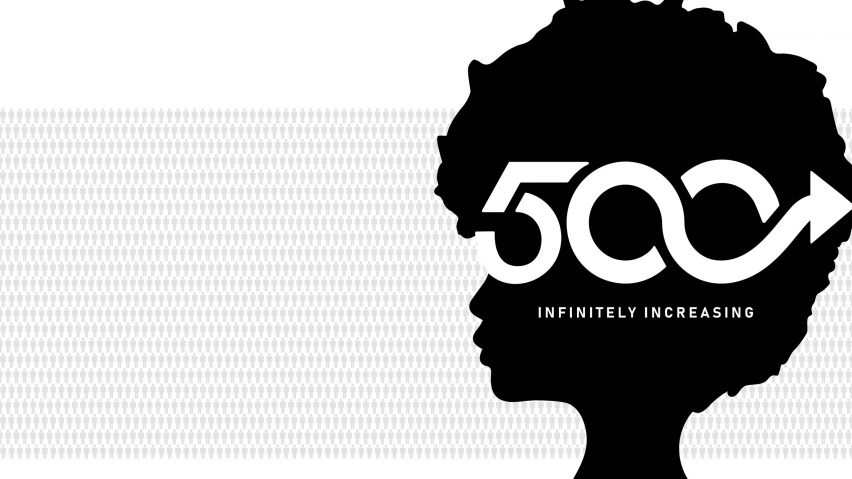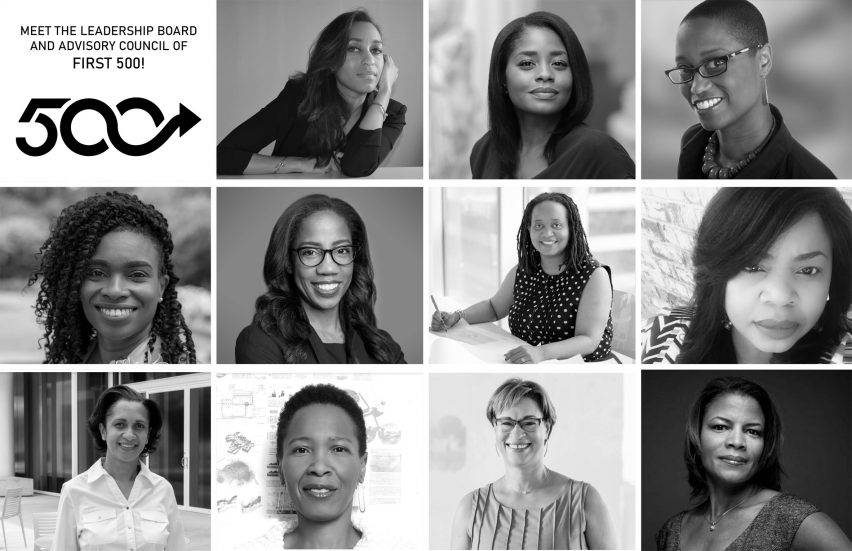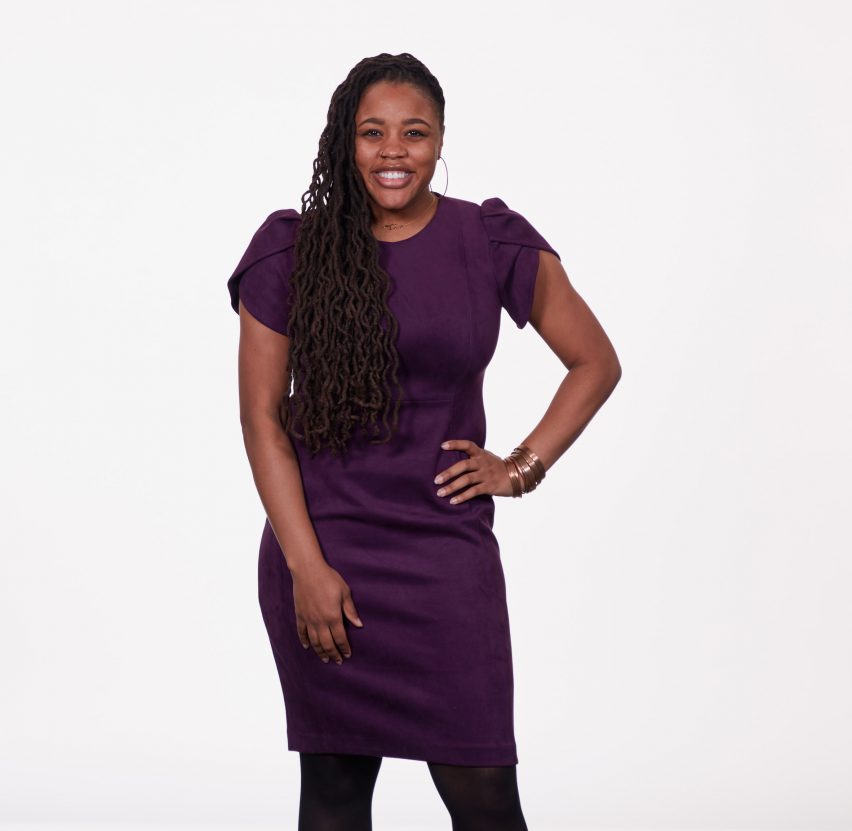
First 500 launches website that "elevates and celebrates" Black women in architecture
American architect Tiara Hughes has launched the First 500 website, an online platform dedicated to showcasing the work of Black women architects working in the US.
Hughes founded the First 500 organisation in 2018 after learning that less than 500 of the 100,000 licensed architects in the US were Black women.
In October, the architect launched a website to further the initiative's mission in achieving racial justice in the architecture industry.
"First 500 aims to inspire Black women and girls to infinitely increase our licensed representation in the industry to better reflect the environments we serve," Hughes told Dezeen.
"The website is a resource and reference to learn more about the incredible contributions of black women to the built environment."
"We must tackle this disparity as an industry together if we want to see transformative change"
According to Hughes, systemic barriers such as lack of access, support and resources are some of the biggest factors preventing Black female architects from furthering their careers.
In light of this, the First 500 website has a library that consists of books written by Black writers or featuring Black architects. It forms part of the initiative's goal to reinsert some of the contributions of Black architects into the historical narrative – something that is often overlooked in education.
"Our platforms emphasize that this dilemma needs to be supported on all fronts from all parties," Hughes explained.
"We must tackle this disparity as an industry together if we want to see transformative change."

To that end, the site also provides features on topics such as equity as well as links to scholarship programs and competitions open to Black females.
There is also a section where users can upload their own profiles to a database, helping improve visibility and representation.
First 500 began as an initiative
Initially, Hughes' aim was to increase the number of licensed Black women architects to 500 and begin closing the industry-wide equity gap.
She spent much of her time travelling around the US to raise awareness about the representation of Black women architects, offering face-to-face support and education.
But Hughes found that such low figures were common in countries around the world.
This prompted her to create an online platform that could support Black female architects on an international scale.

"Today, Black Women Architects make up less than one per cent of all licensed architects in the US," she explained.
"We have since learned that similar disparities exist in countries across the world which is why the platform became global."
"We hope everyone who visits the website will be inspired and spread the word to young Black girls and women interested in learning more about architecture," she added.
"Our collective mindset has to shift from equality to equity"
Alongside the slowly climbing figures, it was events that took place in 2020 that indicated to Hughes that now was the time to launch the website.
"The sudden open-mindedness of the industry towards diversity, equity and inclusion efforts following the murder of George Floyd paired with Covid-19 preventing us from travelling and gathering in large groups signalled the right time to launch the site and create this permanent platform for everyone to connect online," she explained.
Now, Hughes believes that rhetoric and practice must both move from awareness to targetted action.
"Acknowledgement has occurred to an extent following the murder of George Floyd, but our collective mindset has to shift from equality to equity. Equity means meeting people where they are and addressing their needs accordingly.
"First 500 is addressing the most underrepresented group of black girls and black women in architecture directly and unapologetically."
The launch comes amid a rise in projects that address racial inequality in architecture and design. These include a book by Sound Advice and a web plug-in called Something Spaces that showcases work by Black creatives.